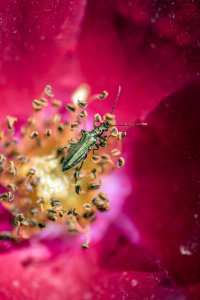10 tips to ease your allergy symptoms

Millions of Americans are keeping their tissue boxes close by in preparation for the peak of the spring allergy season. The budding trees and blooming flowers associated with the return of spring mark an increase in itchy, watery eyes, sneezing and other allergy symptoms.
Seasonal allergic rhinitis, or “hay fever,” affects more than 20% of the people living in the United States, according to the American Academy of Allergy, Asthma & Immunology (AAAAI). Allergies are triggered by substances called allergens, such as pollen or mold spores. Many trees, grasses and weeds contain small and light pollens that are easily carried by the wind, causing allergy symptoms to flare up in the spring.
One of the best ways to help prevent allergy attacks is to start taking medication prescribed by your allergist about a week before peak allergy season in your area begins. With continued use of medication and avoidance of potential triggers, allergic symptoms can be minimized.”
In addition to timing medication, the AAAAI offers the following tips to help allergy sufferers find some relief this spring:
- Do a thorough spring cleaning – windows, bookshelves, and air conditioning vents collect dust and mold throughout the winter that can provoke allergy symptoms.
- Minimize outdoor activity when pollen counts are high. Peak pollen times are usually between 10 am and 4 pm.
- Take medications at least 30 minutes prior to outdoor activity. Consult with an allergist/immunologist to ensure medications are helping you and notify an allergist/immunologist when reactions to medications occur.
- Shut windows in your house on days pollen counts are high. Avoid using windows or fans that may draw pollen inside.
- Wash bedding weekly in hot water.
- Dry laundry indoors. Sheets hanging on an outside line are an easy target for blowing pollen.
- Shower and wash your hair before bed – pollen can collect on your hair and skin.
- Keep pets off of furniture and out of the bedroom. Pollen can cling to the dog or cat after being outside.
- Keep car windows closed during peak season. Use air conditioning and point vents away from face.
- When mowing lawn or doing gardening, wear a filter mask.
Seek proper treatment prior to and during your peak allergy season:
If you are an allergy sufferer, consult with an allergist/immunologist to discuss treatment and environmental control options. An allergist/immunologist is the best-qualified medical professional trained to manage the prevention, diagnosis and treatment of allergies and asthma.